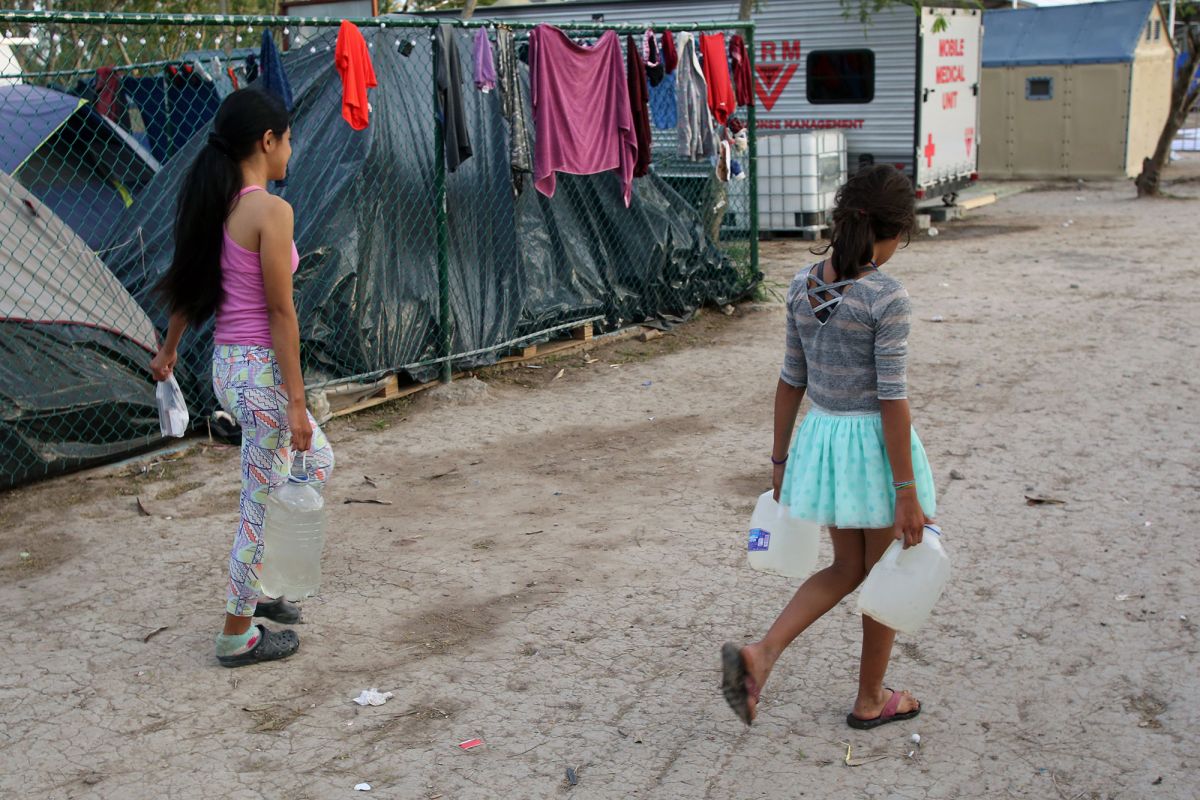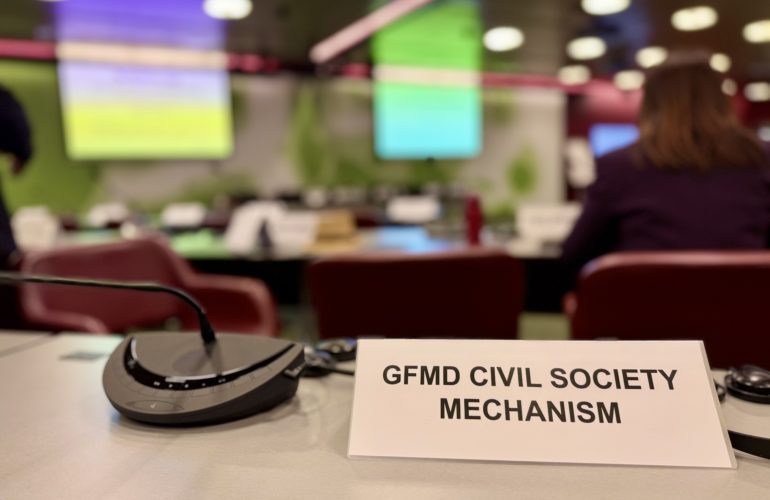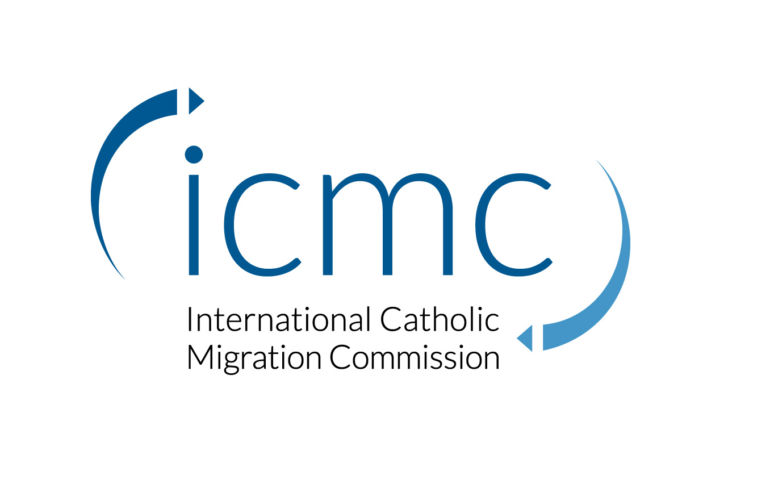Latin American Bishops Urge Governments to Address The Root Causes of Migration.
At a recent meeting, Catholic Bishops from El Salvador and Honduras met with Church representatives and lay men and women working with migrants to discuss migration policies in Latin America. The bishops issued a statement urging the governments of the Americas to respect people’s right to migrate and address the root causes of migration.

The statement was released by the VIIth Meeting of Bishops, which took place from 25-28 October in Valle de Ángeles, Honduras. In their statement, the bishops of Honduras and El Salvador urged the governments of Central America, Mexico, and the U.S. to enact migration policies that “respect human dignity, the international right to asylum, and […] do not separate families.” They also appealed to governments to enact an “integral response […] to address the root causes of migration.”
Episcopal conference officials, Church representatives from Guatemala and the U.S., a delegate of the Vatican’s Migrants and Refugees Section, and lay men and women working at the southern borders of Mexico and Central American countries also participated in the meeting.
As countries of origin, transit, arrival and return of migrants, the Central American countries witness at first-hand the root causes of migration. The most common of these are violence, corruption, poor infrastructure, a lack of economic and educational opportunities, and general instability. Climate change and global health security have also become increasingly relevant drivers of migration.
Church officials said the U.S. and Central American States share responsibility for the political and economic policies that have contributed to the weakening of States and an increased flow of migration northwards as families and workers seek better lives. “The impact of these policies weighs on those forced to flee in search of better conditions of life,” reads the statement.
Over the past months, the U.S. government signed agreements with Mexico, Guatemala and Honduras. The three latter countries agreed to increase security forces on their respective southern borders in an attempt to reduce the number of migrants making their way to the U.S.
Bishop Mark Seitz of El Paso, Texas, who attended the meeting, says government leaders often make little effort to understand the factors that drive migration, much less attempt to solve them. “It’s so much easier to just send money to governments and to beef up the military and the police with armaments, but all of those things are just temporary patches that don’t really resolve issues,” lamented Bishop Seitz to the online Catholic newspaper Crux.
In addition to addressing the root causes of migration, participants urged governments to end policies that allow the rapid removal of migrants without enabling them to apply for asylum through regular channels. They cited Title 42 and ‘Remain in Mexico’ as two U.S. government policies that should “be done away with.”
Title 42 is a clause of the 1944 Public Health Services Law. It grants the U.S. government the right to deny migrants entry into the U.S. or expel them on the grounds of maintaining public health. The clause was rarely used until March 2020, when, under the guise of preventing the spread of COVID-19, it became a common tool to expel migrants at the U.S. southern border, thus denying them the chance to apply for asylum.
The “Remain in Mexico” policy is a common name for the Migrant Protection Protocols. This policy forced asylum-seekers attempting to enter the U.S. through its southern border to remain in Mexico while their cases were processed. On 29 October, a day after the Central American bishops released their statement, the U.S. government issued a memorandum announcing the end the Migrant Protection Protocols.
In a 2 November statement, the U.S. Conference of Catholic Bishops welcomed the decision to end the Migrant Protection Protocols, while also urging the U.S. Administration to put an end to the use of Title 42 to “summarily expel asylum-seekers and other vulnerable persons, especially families.”
The Conferences of Catholic Bishops of El Salvador, Honduras, and the U.S.A. are the national members of the International Catholic Migration Commission (ICMC) in those respective countries. ICMC facilitates a worldwide network of Catholic bishops conferences and Catholic-inspired organizations working on migration and refugee issues at the local and national levels; it also operates direct humanitarian assistance, protection, and resettlement processing programs in countries with large-scale migration-related emergencies.



